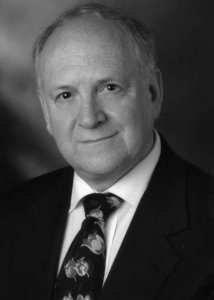Yuri Bender
.
More than half of 500 global business leaders surveyed by AT Kearney, the Washington consultancy, plan to increase investments into Russia "significantly or moderately” during 2015 if the Ukraine conflict ends, sanctions are lifted and geopolitical tensions reduce.
Despite the current turmoil, 50 per cent still see Russia as a "viable” investment environment, according to the poll.
Banks including Coutts and Singapore’s DBS rate Russian stocks historically cheap, with price-earnings ratios having fallen below dividend yields, which is generally a buying signal. Floundering oil prices and wages slashed by a weak rouble have left "Russian exporters, in particular the materials sector, enjoying improving cash flow dynamics”, said Christopher Bannon, Pictet Asset Management’s emerging markets specialist.
Despite this, information from AT Kearney’s Foreign Direct Investment Confidence index, shared with FTfm, shows that for the second consecutive year Russia has failed to feature in the top 25 capital destinations.
Russia was 11th in 2011 and sixth in 2005. Money has since flowed to "safer” havens, including Germany, Sweden and Italy.
Just 178 new foreign investment projects (worth $13bn) were set up in Russia in 2014, according to FDI Markets, a service from the Financial Times. This compares with 396 worth nearly $23bn in 2011.
Russia is "uninvestable” due to an unreadable outlook and "terrible” relationship with the west. But many investors crave "business as usual” because they enjoyed returns during the past decade, said Timothy Ash, head of emerging market research at Standard Bank.
Russian analysts are split as to whether the environment will improve. "The second round of Minsk negotiations in February 2015 has led to hopes that the worst part of the conflict in eastern Ukraine may be over,” said Sergei Voloboev, Norvik Banka’s chief economist.
The only political partner now able to help Russia raise funds and improve its economy is China, said Dmitri Trenin, director of the Carnegie Moscow Center.
A natural-gas deal between the two countries, part of Russia’s "look east” policy, has captured the imagination of Asian business leaders. "Attitudes towards the Russian investment environment are somewhat more positive in Asia than Europe and certainly than in the Americas, which have the lowest inclination to invest,” said Erik Peterson, partner and managing director of AT Kearney’s global business policy council.
Further asset price falls would help power Asian interest. "While Russian stocks and bonds are clearly cheap, there are scenarios under which these assets could become cheaper still,” added Costa Vayenas, head of emerging markets research at UBS Wealth Management.
Russia’s economy is set to shrink 6 per cent in 2015, according to Axa Investment Managers. Sanctions prevent corporates raising US and European capital, while downgraded debt has further reduced foreign appetite. "Vladimir Putin has burnt a lot of bridges and there are some seriously big economic gorillas out to get him,” said the managing director of a Swiss private bank.



_jpg/250px-ElbeDay1945_(NARA_ww2-121).jpg)







